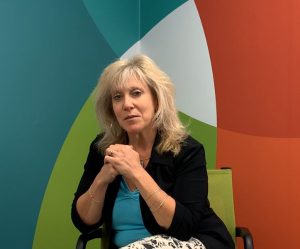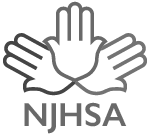In the last few months of 2020, JFS Counseling was invited to host mental health “check-ins” for students involved with Hillel at Virginia Tech, staff at the Weinstein JCC, and community members through JCFR. Across the spectrum of age and experience, many concerns were the same: anxiety about the pandemic, difficulty adjusting to new routines, feelings of loneliness and isolation. It may not be January 1st anymore, but it’s never too late to make a resolution to take care of your mental health! If you didn’t get the chance to attend one of our check-ins, this is what three JFS counselors had to say.
You don’t need to do anything radical.
Dr. Sydney Fleischer, JFS’ Director of Clinical Services, shared the “Six Daily Questions to Ask Yourself in Quarantine” published in Greater Good Magazine by Brooke Anderson back in March. Consider taking a quiet moment to jot down your answers.
- What am I grateful for today?
- Who am I checking in on or connecting with today?
- What expectations of “normal” am I letting go of today?
- How am I getting outside today?
- How am I moving my body today?
- What beauty am I creating, cultivating, or inviting in today?
Dr. Fleischer insisted that you don’t need to do anything radical. Bring a bouquet home from the grocery store if hiking isn’t your thing. Dance to music in your chair if you can’t go running. If you’re not much of an artist, pick up a coloring book instead! If you find these questions helpful, jot them down on a sticky note and put it somewhere you’ll see it every day.
It’s not “just” stress or burnout.
JFS counselor Sonni Gittelman pointed out signs of stress and burnout to watch out for, especially if your responsibilities at work or home have changed. Stress and burnout are real physical and emotional responses to your circumstances – not “just” stress or burnout. If any of these symptoms sound familiar, it might be time to schedule a break or get a little extra help.
- Excessive daydreaming and/or trouble concentrating.
- Catastrophic thinking.
- Significant changes in appetite and/or weight.
- Apathy; low motivation or energy.
- Low self-esteem.
- Feeling hypercritical or over-sensitive.
The power of vision.
Ellen Glass, a counselor at JFS for more than thirty years, told a story close to her heart about the power of vision. In a gentle voice, she read: “Over thirty years ago, I watched a video created by Dr. Viktor Frankl, the world-renowned psychiatrist, neurologist, educator, author and Holocaust survivor. In the video, he addressed the importance of vision and shared his personal story.
“As a psychiatrist and educator, Dr. Frankl observed the behaviors and coping strategies of his fellow prisoners while in captivity. He saw men overcome with the horror they were living. Many had no hope for the future and eventually gave up on life. Sadly, they were the first to die. They died more from lack of hope than a lack of food or medicine.
“There were also prisoners who reminisced about their lives before. Throughout their inhumane treatment, they thought of their loved ones and the life they lived and cherished. These men envisioned their future once they were liberated and never gave up hope. They had vision, and many of these individuals survived.
“Dr. Frankl talked about his own personal vision and purpose. With death and horror surrounding him, he reminisced about his wife and imagined their reunion and the life they would live when liberated. But for me, his most compelling vision was this: he envisioned himself standing at a podium, with his newly published book in front of him, lecturing to a packed auditorium about his experience in the camps and the powerful role vision played in his survival.
“With so much of our lives beyond our control, now it’s time to create your own vision. Having a vision for the future promotes hopefulness, action, a sense of purpose, and a positive attitude. What visions will you create to help you get through this difficult time?”







Leave a Reply